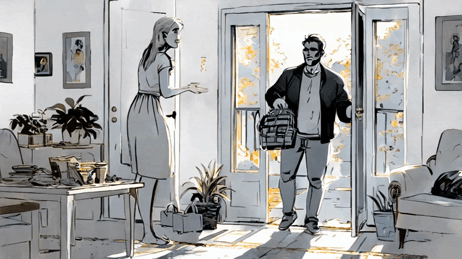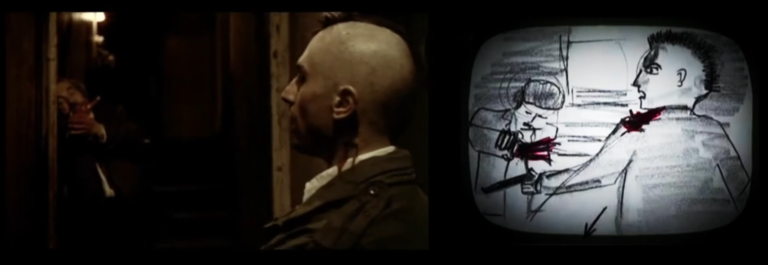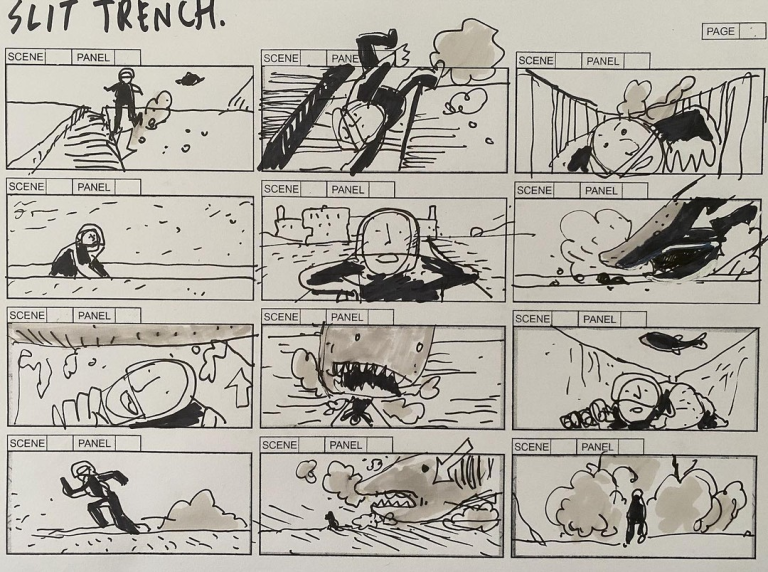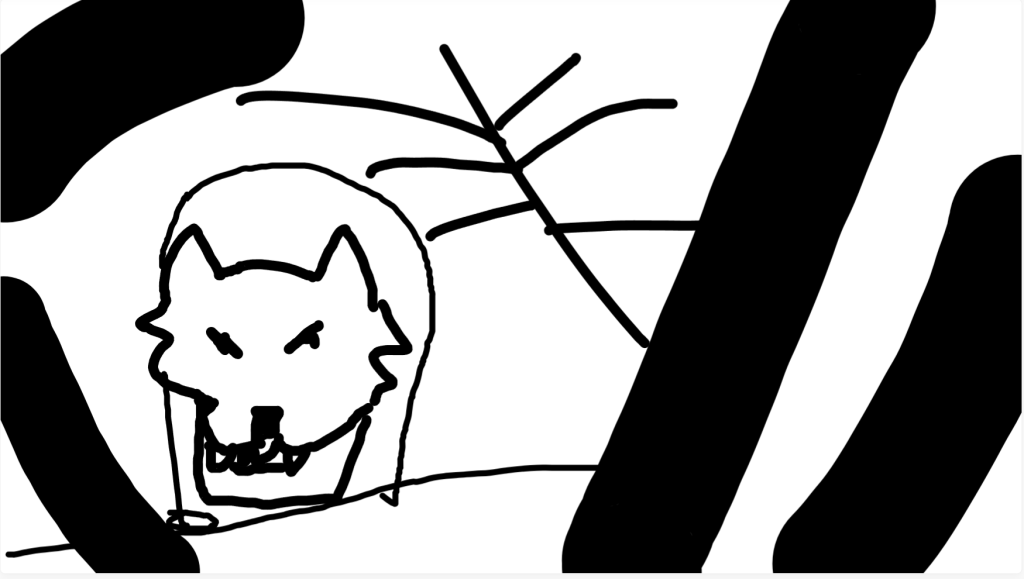The huge pros and cons of AI based previsualisation
This week, I’ve been testing ltx.studio, an AI-powered storyboarding tool. Like most AI software, it’s impressive at first glance—fun to experiment with and even a little intimidating. But the real question is: does it actually solve a problem?
How It Works
The idea is simple. Drop in your script, and the AI generates a storyboard for you. Actually, it’ll let you add motion to the images, stick on music, and turn it into an animatic, if you want.
If you struggle with drawing, this might seem like a dream. The software visualizes your film for you, leaving “only” the shoot itself for you to tackle.
Does AI Belong in Storyboarding?
Personally, I’m not convinced. If you’ve followed my AI discussions before, you know I embrace it—but only as a tool, not a director. Storyboarding is more than just illustrating scenes; it’s about staging, blocking, and guiding audience focus.
Of course not all filmmakers use storyboards, but those that do are using it to solve filmmaking problems, not make pretty images to sell the film. That’s something different (and something that LTX might be amazing at, I’ll come to that)
Conversely, if your work is chaotic, embrace the natural “mushiness” and add structure where needed.
Where AI Falls Short
From what I can see, the boards created by LTX are just images based around what’s happening in the script. I mean, that’s quite smart – it’s analysing the script, working out what the shots could be, and creating a prompt for each shot.
I don’t know what that’s helping you achieve. It’s saying a film could look like this. But your film? Working out what that shot is – where the camera goes, where the actors go, what the environment is like, the “mise-en-scene”, that’s the filmmakers job. Even if you don’t care about that emotionally, it matters logistically. Often when I board, I have a plan of the set so that I know my staging makes sense. I’m not making cool images, I’m planning for an actual shoot. The AI does the opposite. It doesn’t care about helping me plan my shoot, it only cares about cool images.

Here’s LTX’s AI generated boards for a short film that I wrote. It’s fun that it came up with a full sequence in minutes, but the fact that I have no idea what’s going on AND I WROTE IT, is a problem to me.
I’d love to get your interpretations on what’s happening here…if anyone nails it, then maybe I’m completely wrong about the usefulness of this AI
You Don’t Need AI OR Drawing Skills
If you’re worried about your drawing skills—don’t be. You don’t need more than a few circles and lines to storyboard effectively. Some of the greatest films ever made started with nothing more than simple stick figures.
MARTIN SCORSESE – TAXI DRIVER
Here’s one of my favourite examples of how simple boards can be for amazing results, Scorsese’s own boards for Taxi Driver. There’s a nice side-by-side video here, where you can see how closely he stuck to the plan that he created

BEN WHEATLEY – THE MEG 2

Ok maybe Meg 2 isn’t one of the greatest films ever made, but I’m a big fan of both Ben Wheatley, and his boards! He’s still doing them himself, even on blockbuster budget films If you’re going to sink millions of dollars into a CG Meg sequence, it makes sense to plan it first. results, Scorsese’s own boards for Taxi Driver. There’s a nice side-by-side video here, where you can see how closely he stuck to the plan that he created.
BONG JOON HO – PARASITE
I have to hand it to LTX. This is very cool and very fun. In case you don’t know how it knew that my drawing was a wolf (how dare you), or that the environment was supposed to be snowy – that’s all in the prompt. Then my mouse strokes (annoyingly, it doesn’t work with my tablet) guide the composition
Final Thoughts
AI-powered storyboarding feels like a solution in search of a problem. We’re in a weird place at the moment where we have one section of people appalled at the idea of AI taking their jobs, and another desperately trying to think of different ways to use AI to take people’s jobs!
The focus of those generating AI seems to be “let’s use it to do everything”, and focusing on realism as an end goal. We can make the same mistake in VFX, as we get pulled in to some arbitrary definition of “perfection”. But just like with storyboarding, 90% of your work should be done in the simple, broad strokes, with details/realism sitting on top of that.
Incidentally, we can all improve in our storyboarding and visual storytelling technique, but I don’t think AI can teach us how to do that. If you’re interested in doing that, here’s some books that I’d recommend:
Framed Ink: Drawing and Composition for Visual Storytellers – This is one of the best books ever on visual composition. Worth it just for the illustrations even if you don’t read it!
Parasite: A Graphic Novel in Storyboards – A filmmaking and storyboarding masterclass AND a thrilling story to read. What more do you want?
Film Directing: Shot by Shot – An incredibly thorough book that treats storyboards as a directing tool, not a drawing exercise!
What do you think? Is AI a game-changer for storyboarding, or just another gimmick? Let me know your thoughts!


